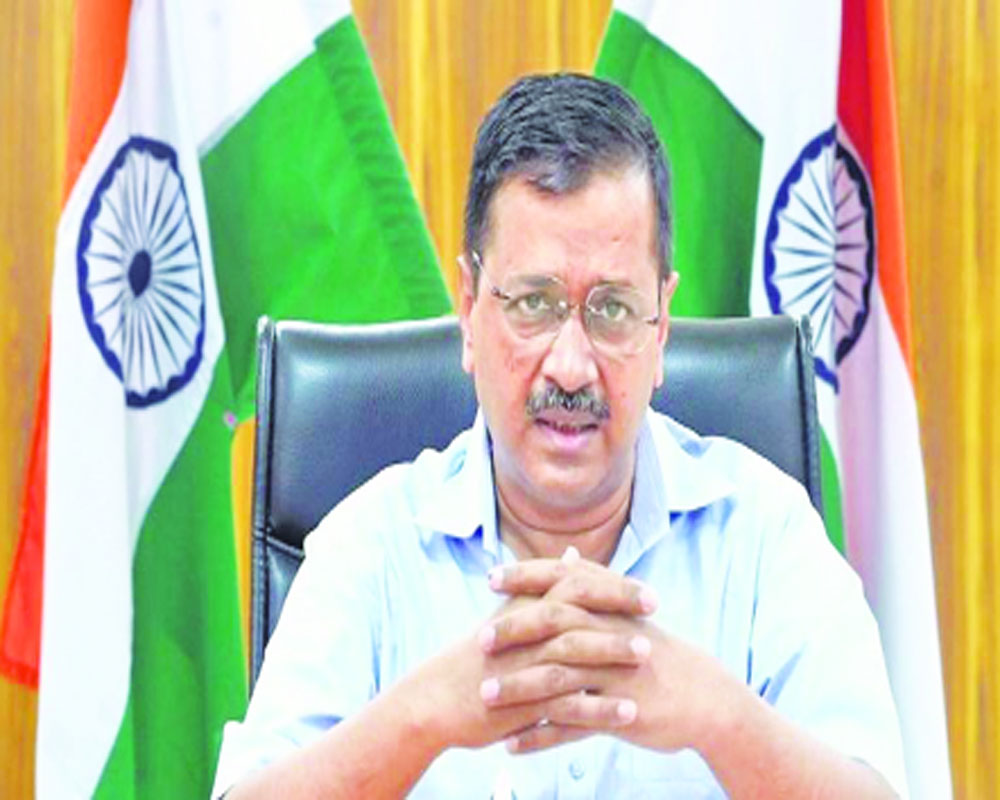Delhi has sealed borders fearing an influx of patients from neighbouring States but NCR needs a common protocol
Can Delhi be immune to the symbiotic linkage with its surrounds that have come to be known as the National Capital Region (NCR)? More importantly, considering the overall social, cultural and economic potential of such an entity and the vibrancy and power this geographical contiguity affords, there ought to be a certain commonality of operations. Particularly in the time of the pandemic, there needs to be a cohesive response strategy where Chief Ministers of the three States concerned — Delhi, Uttar Pradesh (UP) and Haryana — should at least evolve a unified protocol for better execution of COVID-19 management strategies. If there is a shared eco-system, then each must try to balance it. The sealing of borders will do more harm than good at a time when the regional growth engine has stuttered to a stop and sporadic economic activity is yet to show the much wanted results. And we could certainly do without the politics of posturing, in this case UP publicising that 42 per cent of its cases were carriers from Delhi and the Arvind Kejriwal Government hitting back saying Delhi hospitals were for residents only. The fact of the matter is people are fluidic in this region, given their workplaces in the city and homes in the suburbs, and confusing them with differing protocols only leads to more violations and a patchy resumption of normalcy. Something which we can ill-afford during the pandemic. In fact, it’s not just about the service sector but millions of labourers, who work across district and State borders and have been holding on. Closure means they, too, are now leaving their homes in a second wave of migration. And while consulting citizens is a good idea, State policies in times such as these should flow from the wisdom of the leadership and not populism. So though the border sealing is to be only for a week, its extension should be reasoned and measured. Chief Minister Kejriwal is not wrong when he says that healthcare services in his State are free and better than in a lot of neighbouring ones. So, as the number of Coronavirus infections rises, he fears patients from outside would want to get treated in the city and overwhelm its health infrastructure. But fact of the matter is that many in NCR have been former residents of Delhi and even if not COVID-infected, have been long-time regulars at Delhi hospitals, particularly for critical and terminal illnesses. A prolonged closure of such hospitals would mean that such patients would not find it easy to migrate to a local hospital and get the requisite treatment. Likewise, all COVID cases would not rush to Delhi unless there are complex cases that need specialist intervention. In fact, all neighbouring States should evolve a module of sharing medical resources in managing the spread in North India’s most clustered cities rather than be partisan about it.
The larger reality is that hospitals, both private and public, are fast running out of COVID care beds and ventilators with patients being waitlisted and often succumbing to the disease because of the delay. According to official figures from the Delhi Government, with Corona cases expected to rise over the next 30 days, 10,000 beds have been earmarked for patients with serious symptoms. COVID-19 cases are at present increasing at the rate of 5.9 per cent a day in the capital. That is doubling every 12.8 days, compared to the national average of 16.8 days. Of course, Delhi had one of the highest testing rates with 10,881 tests per million population, as against the national average of 2,675 tests per million. For the next phase, between July-end and mid-August, when Delhi is expected to be closer to its peak, the administration plans to take over banquet halls, community centres, stadiums and more hotels. To tackle cases in slums and unauthorised colonies, it plans to increase the number of beds at COVID care centres to 10,000 from the current 6,000. On April 7, when Delhi had only 525 Coronavirus cases, Kejriwal had said that 3,000 beds were available and promised to scale up the number to 30,000. Seven weeks later, the number of beds in State-run and private hospitals remains 5,100. This prompted the AAP Government to give a renewed push to its home treatment for asymptomatic cases and organise more beds. In terms of viral overload in cities, Delhi is now second only to Mumbai where infection cases have crossed the 35,000-mark. There is no doubt a spillover effect would happen in Noida, Gurugram and Ghaziabad, too. UP now has 78,033 beds in L-1, L-2 and L-3 COVID hospitals and has become the first State in the country to ready one lakh beds for patients. There is an NCR Planning Board, an inter-State institution created expressly for regional planning. Why can’t this be empowered to share and monitor containment strategies now? None of the States can afford a turf war.


























